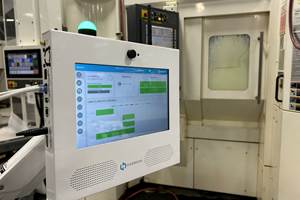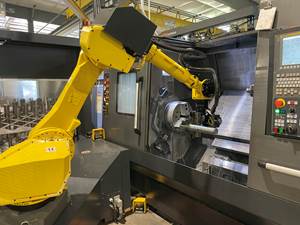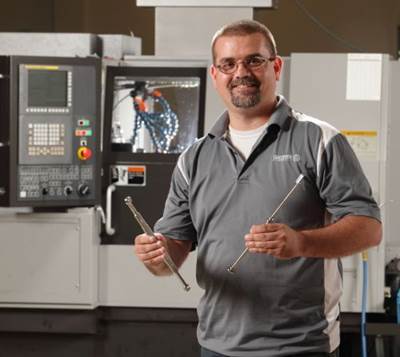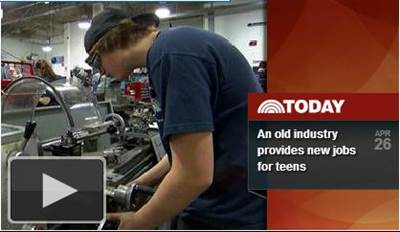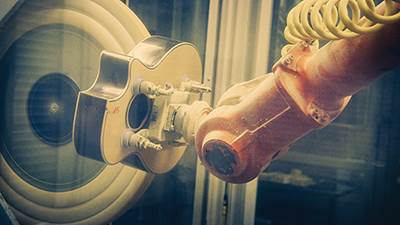Managing Generation Z in Manufacturing
The next generation of manufacturing employees have a solid work ethic and vast technical skills that provide value in the machine shop.
Share




For many years, we’ve heard about millennials and seen many of the trends, challenges and peculiarities associated with their demographic referenced in popular media. More recently, some of that coverage has shifted to Generation Z — the demographic cohort after the millennials. Demographers and researchers typically reference the late 1990s and early 2000s as the birth years of members of Generation Z. They are digital natives that have used computers, the internet and social media technology since they were old enough to reach (and click) a mouse.
Increasingly, more of us who own and manage machine shops are recruiting and hiring members of Generation Z. They are becoming the fastest-growing segment of our workforce. This is particularly true where my shop is located, as the state of Connecticut and several manufacturing groups here started a campaign in recent years to raise awareness of local manufacturing jobs.
According to state education officials, there are currently 14 degree-granting technical high schools across Connecticut that offer students some type of manufacturing program. These schools typically serve both traditional high-school-age young people and returning students. In these schools, students develop professional skills, gain on-the-job experience and build connections that can lead to jobs with local manufacturing companies.
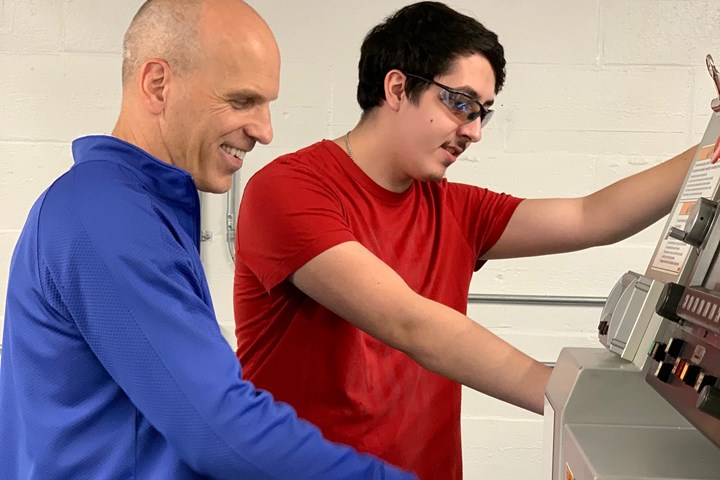
A renewed emphasis on entering the trades has led to the development of degree-granting high school programs across the state of Connecticut. These programs have spurred an uptick in applications from Generation Z in our shop. Photo Credit: Mark Rohlfs
Today, many Connecticut high schools, technical schools and community colleges promote working as a machinist or pursuing a career in other manufacturing-related vocations as good options for students to consider. Additionally, Connecticut’s major business journals often feature members of Generation Z in cover stories about how young people can begin a rewarding career in manufacturing.
As a result of this interest and awareness, East Coast Precision Manufacturing now receives more applications from young people in their early 20s and even late teens (right after they graduate high school) than ever before. Despite how they are often portrayed in popular media, these young people are neither naive nor lazy. In my shop, they are among the most motivated and enthusiastic professionals we have ever hired.
How are they different or even unique as a generation, and how can those who run machine shops best manage and help these young employees succeed in the workplace? First, understand that they are usually ready and willing to move outside of their comfort zones. Don’t hesitate to ask them to try new things, to take on new challenges or even to do some of the extra work that needs to be completed to help keep things running efficiently. They are not easily intimidated by the prospect of taking on a new challenge in the shop.
This may be because it’s in their collective nature or because they grew up hearing their parents or grandparents talking about their own work in manufacturing, and they have absorbed some of this classic American work ethic. The feedback I often receive from these young employees is that they feel fortunate to have landed a good job earning a middle-class wage right out of high school. They are largely positive and enthusiastic about their jobs at my company, and their enthusiasm sets a good example for the rest of us.
As someone who has managed employees in a machine shop for more than 20 years, it has been my experience that members of Generation Z are eager to work outside of their job descriptions. Indeed, I have found that these young workers typically have a fluid view of their job descriptions.
At East Coast, we distinguish ourselves from typical machine shops by emphasizing a clean environment with new machines. Keeping the place spotless is a priority and our Generation Z employees are quick to push a broom, empty a trash can and clean up when asked. In my shop, these young people are typically the first employees to show up in the morning and instead of racing toward the door at quitting time, they tend to stick around until their work is completed.
As part of our company’s team-building initiatives, we arrange extracurricular activities outside the shop. Employees tend to embrace these opportunities, which have included driving race cars at a nearby track, a field trip to America’s oldest manufacturing museum in Vermont, dinner and mini-golf outings, track and field style competitions as well as other group activities. We also plant a vegetable garden in the summer, and employees pitch in on the weeding and harvesting, taking vegetables home with them.
Members of Generation Z eagerly support and attend these activities, which are a great way to keep things fun for employees of all ages.
It is true that these new members of the workforce have been using technology in one form or another their whole life and they often use their smartphones to master the latest apps for both work and leisure. However, I have found members of Gen Z to sometimes lack some of the deeper knowledge about the mechanics of technology and the hardware they encounter in their use of technology.
Older employees, maybe someone in their 40s, probably learned about networking printers and learning computer languages as they evolved in the years before members of Generation Z were born. Still, don’t assume that younger employees “know it all” when it comes to technology, and always be prepared to help them better understand when something falls outside their knowledge base.
Similarly, when presented with forms to fill out, such as tax forms, older workers may take them home and look up the information and complete them independently. Members of Generation Z sometimes need reminders to do these things, and they can benefit from some direct support, guidance and personal help when they don’t understand how to do something. They will ask thoughtful and relevant questions, and you should be prepared to offer them good and accurate answers because they really do care.
Investing in the next generation is an investment in your shop.
Related Content
Can Connecting ERP to Machine Tool Monitoring Address the Workforce Challenge?
It can if RFID tags are added. Here is how this startup sees a local Internet of Things aiding CNC machine shops.
Read MoreSame Headcount, Double the Sales: Successful Job Shop Automation
Doubling sales requires more than just robots. Pro Products’ staff works in tandem with robots, performing inspection and other value-added activities.
Read MoreHow I Made It: Amy Skrzypczak, CNC Machinist, Westminster Tool
At just 28 years old, Amy Skrzypczak is already logging her ninth year as a CNC machinist. While during high school Skrzypczak may not have guessed that she’d soon be running an electrical discharge machining (EDM) department, after attending her local community college she found a home among the “misfits” at Westminster Tool. Today, she oversees the company’s wire EDM operations and feels grateful to have avoided more well-worn career paths.
Read MoreWorkholding Fixtures Save Over 4,500 Hours of Labor Annually
All World Machinery Supply designs each fixture to minimize the number of operations, resulting in reduced handling and idle spindle time.
Read MoreRead Next
How to Succeed in a Machining Career
A successful machinist with a medical device company offers advice to young people about how to pursue the same rewarding career he enjoys.
Read MoreVideo: Young People Find High Paying Jobs in CNC Machining
Watch video from NBC’s Today show about young people pursuing skilled work in CNC machining instead of opting for a four-year college study.
Read MoreEmployees and Automation in Harmony
For a well-known guitar maker, automation sets employees free, and product improvement engages those employees’ attention.
Read More























